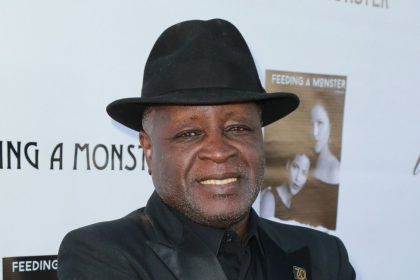 Many young music fans may not be aware of Pete Seeger, the legendary folk singer-songwriter who passed away this week at age 94. But Seeger’s legacy of activism and his belief that music can be a tool for change resonates deeply in the consciousness of popular music. His ideology can be found in everything from Bob Dylan‘s early ’60s protest songs to Bob Marley‘s ’70s classics and Public Enemy‘s ’80s and ’90s social consciousness.
Many young music fans may not be aware of Pete Seeger, the legendary folk singer-songwriter who passed away this week at age 94. But Seeger’s legacy of activism and his belief that music can be a tool for change resonates deeply in the consciousness of popular music. His ideology can be found in everything from Bob Dylan‘s early ’60s protest songs to Bob Marley‘s ’70s classics and Public Enemy‘s ’80s and ’90s social consciousness.
Seeger wrote and sang everything from charming children’s material like “Froggie Went A-Courting” to the timeless “Turn, Turn, Turn,” which became a classic hit song for the Byrds in 1965. Seeger was a Harvard dropout and he’d fought in the Army during World War II. He was also a proud communist who didn’t waver when he faced the powerful House Un-American Activities Committee in the 1950s. His affiliations hurt his career and made him a political target, but Seeger remained steadfast in his core beliefs.
His songs provided the soundtrack for so much of the tumultuous social change that occurred during the 1960s. In addition to “Turn, Turn, Turn,” Seeger’s compositions “Where Have All the Flowers Gone?” “If I Had A Hammer” and the ubiquitous “We Shall Overcome” served as a sonic backdrop to the Civil Rights Movement, Anti-War Movement, women’s rights and countless other causes.
During 2011’s Occupy Wall Street movement, Seeger stated that we should “be wary of great leaders. Hope that there are many, many small leaders.”
In the wake of Seeger’s death, guitarist/songwriter Tom Morello told Rolling Stone: “I hope to learn from him to have less anger and more heart. Look at what’s written on [early protest folk pioneer] Woody Guthrie‘s guitar and Pete Seeger’s banjo. Woody’s guitar says, ‘This machine kills fascists.’ Pete Seeger’s says, ‘This machine surrounds hatred and forces it to surrender.’ That’s a great soul.”
Twenty years ago, Seeger talked about the power of music to change the world — despite the fact that some people view it as frivolous entertainment.
“All I know is that, throughout history, the leaders of countries have been very particular about what songs they want sung,” he explained. “So some people, beside me, must think songs do something.”















